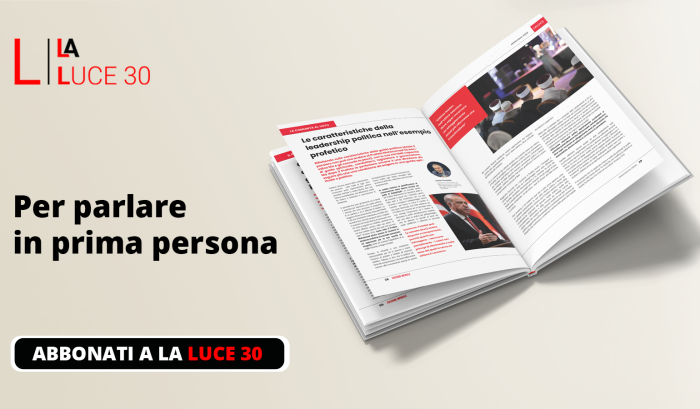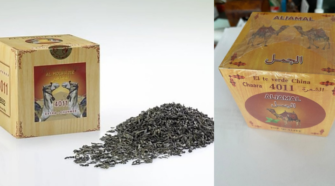“Your son must eat pork and must attend the Catholic religion classes”. This, in brief, is the shocking content of the ruling issued by the Second Civil Chamber of the Court of Pavia on March 10, 2021, in response to the appeal submitted by Khaled Bahri, a Tunisian citizen and father of Haroun.
Everything started when Khaled Bahri, a 42 years old cleaner and warehouse worker living in Italy since 2013, separates from the mother of his son Haroun, born in 2015. At that moment his ordeal begins: as the last step, in fact, the mother does not respect the decision of the judge who establishes the shared custody of the child.
Therefore, Khaled lodged an appeal denouncing the fact that, in the last 16 months, Haroun’s mother had denied him the right to spend the weekend with his son. In the appeal, he also denounced the decisions concerning the religious education of his son that the mother would have taken in total autonomy, also in breach of the rule that provides for the consent of both parents for the enrollment in religious education.
In particular, he asks that Haroun does not attend Catholic religion class and does not eat pork at school, using the diet reserved for Muslim children.
This was the judgment response signed by the president of the Panel of Judges, Marina Bellegrandi:
“The mother, although not Catholic, believes that the religious hour constitutes a cultural enrichment for the child and that it is good that the latter can stay with his companions during the hours in which that teaching takes place. The appellant, on the other hand, does not want the child to partecipate in the Catholic religion classes.
The Panel, having to resolve the conflict between the parents, can only decide having in mind the interest of the child and, in this context, it believes that the integration of Haroun into the environment in which he lives, needed for his peaceful growth despite the conflict between his parents, requires avoiding him to be treated differently than his classmates and therefore must allow him to eat the same other children eat and to partecipate in religious lessons that, notoriously, are followed by most of the primary school pupils…
…Totally unjustified would then be, for him, the deprivation of food, that he may like and that is not harmful to his health, simply by the will of one of the two parents, not shared by the other parent.
Finally, for the sake of completeness, the Court cannot avoid to note that the applicant, who claims to impose a strict dietary regulation on his son, has personally transgressed the precepts of Islam by drinking alcohol…” (the reference is to an event that occurred years ago, ed.).
Therefore, the Court orders: “that the minor should follow a diet without restrictions at school; and that the minor is enrolled in religious education at school”.
By using these words, the judges dismiss the religious feeling of the parent to a lower rank than what would be the mostly present habits in the child’s school environment, proving that they have no consideration or understanding of the religious rights of citizens enshrined in our Constitutional Charter and in the International agreements on human rights. The decision, its motivations and the terms used to express it, therefore, appear disconcerting to those who are aware of religious facts and law.
It should also be known that Haroun was not baptized, but was circumcised and his parents gave him a name from the Islamic tradition, until he lived with both parents the problem never arose, but now, as Khaled tells us “his mother decided in total autonomy, like if I didn’t exist, she even forged the form for the choice of the religious option at school and on the diet she did the same, I came to know from the school, not eating pork it doesn’t offend the culture of his mother, but for me it is a very important thing, judges should consider it.”
According to Khaled, his mother’s choice is most likely due to a desire to spite him and not to a real interest in the religious issue: “Haroun’s mother is not even Catholic, she is an Ortodox Christian and had never expressed any desire to raise our son religiously”.
Khaled then talks about the verdict: “I feel deeply hurt by this decision, the judges treated me and my faith as if we had no importance. Is the faith of a child’s father worth less thant the fact that all children eat pork? And about the religion classes then, I was taught that this is a secular state, not a confessional state, but, if you read the sentence, it seems that this is a state religion. And what does the religion class have to do with culture? Can’t you be culturally Italian without being Catholic?
I’ll say it again, for me this verdict was a punch in the stomach because I went in Court to obtain justice, not to be humiliated, they took the liberty of questioning my degree of religious practice, they implied that I wasn’t Muslim enough to wish that my son would not be educated against my faith, that is unacceptable”.
Khaled appears distressed and tried but has no intention to give up the fight for his son, he announces then that he wants to appeal. He tells us “What I feel now is a sense of helplessness, because I feel responsible in front of God, my son has been physically moved away from me, but now, what is worse, is that they want to deny and erase all that I am, my tradition and what I want to convey him, just as if I didn’t exist as a father: this is a grave injustice to which I don’t want to surrender”.








